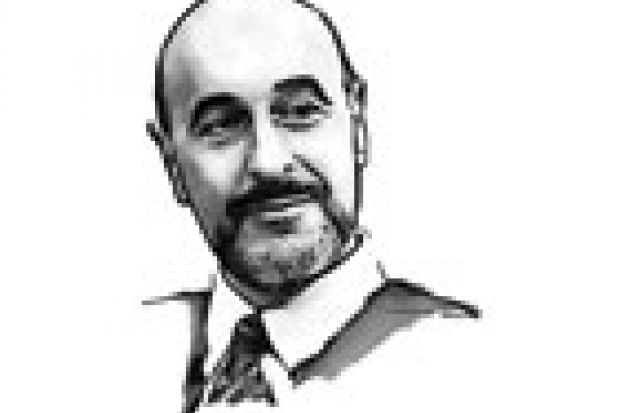In the acrimonious world of climate change sceptics, Lord Monckton has earned special distinction for his mixture of antipathy, erudition and ad hominem attacks on his opponents. Even before he set out on his lecture tour of Australia this month, Monckton set the tone by comparing the Australian government’s former climate adviser, Ross Garnaut, to Hitler. Monckton apologised and has been more careful in his rhetoric but he still considers the Australian prime minister, Julia Gillard, to be a deluded “socialist”.
Not surprisingly, Monckton’s views on climate change - and climate advisers - have annoyed many Australians. As a result, some of his speaking functions have been cancelled while others have been rowdy affairs.
Even the national broadcaster, required by its charter to present unbiased information, wanted Monckton silenced. Or so it seemed when a live telephone interview with Monckton, broadcast by the Australian Broadcasting Corporation, was abruptly terminated when the interviewer hung up the phone. Hanging up on interviewees is not typical behaviour for the ABC, but the interviewer’s ire may have been triggered by Monckton telling him to “shut up”.
One place that permitted Monckton to speak was the University of Western Australia, but the vice-chancellor, Alan Robson, wanted everyone to know that the lecture was not official.
“It’s not endorsed by the university, it’s not hosted by the university, he’s not invited by the university. A group from the community have hired a venue,” he said. This was a neat sidestep, a way to allow Monckton to speak on campus without having to make any judgement about the man or his message.
Some academics were incensed that Monckton would be allowed to speak, even in a rented room. One said that his appearance would “misrepresent UWA’s view”, which suggests that the university has an “official” view on climate science and that any speech given on campus must be consistent with this official view. This seems to be the very antithesis of what higher education should be about.
Another academic said Monckton’s lecture should be prohibited because his costs were partly covered by profit-making companies, implying that the message he delivers advances the interests of his sponsors. This may be true, but this argument would also prohibit authors on book tours, actors on movie tours and many other speakers from appearing on campus.
To rebut these critics, Monckton offers two arguments. First, he claims the right to free speech. He should be allowed to express his opinion just like everyone else. His second argument focuses on balance. Monckton claims that, as a sceptic, his speeches provide a necessary counter-argument to the orthodox view that human-induced climate change is heating up the world and needs to be checked.
While these two arguments sound reasonable, there are subtle problems with both of them.
The freedom to express one’s views is indeed protected by common law and implied constitutional guarantees. Every citizen is free to say that the earth is flat or that aliens kidnap people and use them for sex or that human beings do not cause climate change. No one can stop anyone from saying these things.
It does not follow, however, that the right to free speech carries with it an entitlement to lecture at a university. You may fervently believe that the world is flat, but this does not mean that a university is obliged to let you deliver a geography lecture. I am not suggesting that Monckton is a flat-earth type crank, only that universities must make judgements about who speaks on campus. Otherwise, biologists would be forced to permit lectures in creationism and philosophers would have to allow lectures on the Kabbalah.
Monckton’s second point, the need for balance, is more interesting. As he says, scientific knowledge is always provisional. Scepticism about prevailing beliefs drives researchers to devise more rigorous tests that serve to deepen our understanding.
As a declared sceptic, Monckton believes that he is playing a vital role in advancing understanding. But is he? To answer this question, it is important to differentiate scientific scepticism from mindless doubt.
Anything can be doubted, no matter how much evidence exists to the contrary. This is a form of dogmatism, a stubborn clinging to a point of view while rejecting the preponderance of evidence.
Scientific scepticism is different. It embodies a special type of doubt called, in the words of another lord, Eric Ashby, “constructive dissent”. Practitioners of constructive dissent do not just oppose entrenched ideas. According to Ashby, constructive dissenters use their deep knowledge of a field, careful observations and creative thought to “shift the state of opinion about a subject in such a way that the experts concur”.
To be worthy of a voice on campus, Monckton must do more than simply deny the evidence on the future effects of climate change, he must convince the experts to modify their views.
This is not impossible. Widely held ideas are often overturned by better ones. For example, Barry Marshall, a West Australian researcher, convinced doctors that gastric ulcers were not caused by stress but by bacteria. It took him 10 years, but he won the Nobel prize for his efforts.
Who knows, there may be a prize waiting for Monckton too if he decides to practise constructive dissent.
Register to continue
Why register?
- Registration is free and only takes a moment
- Once registered, you can read 3 articles a month
- Sign up for our newsletter
Subscribe
Or subscribe for unlimited access to:
- Unlimited access to news, views, insights & reviews
- Digital editions
- Digital access to THE’s university and college rankings analysis
Already registered or a current subscriber? Login
